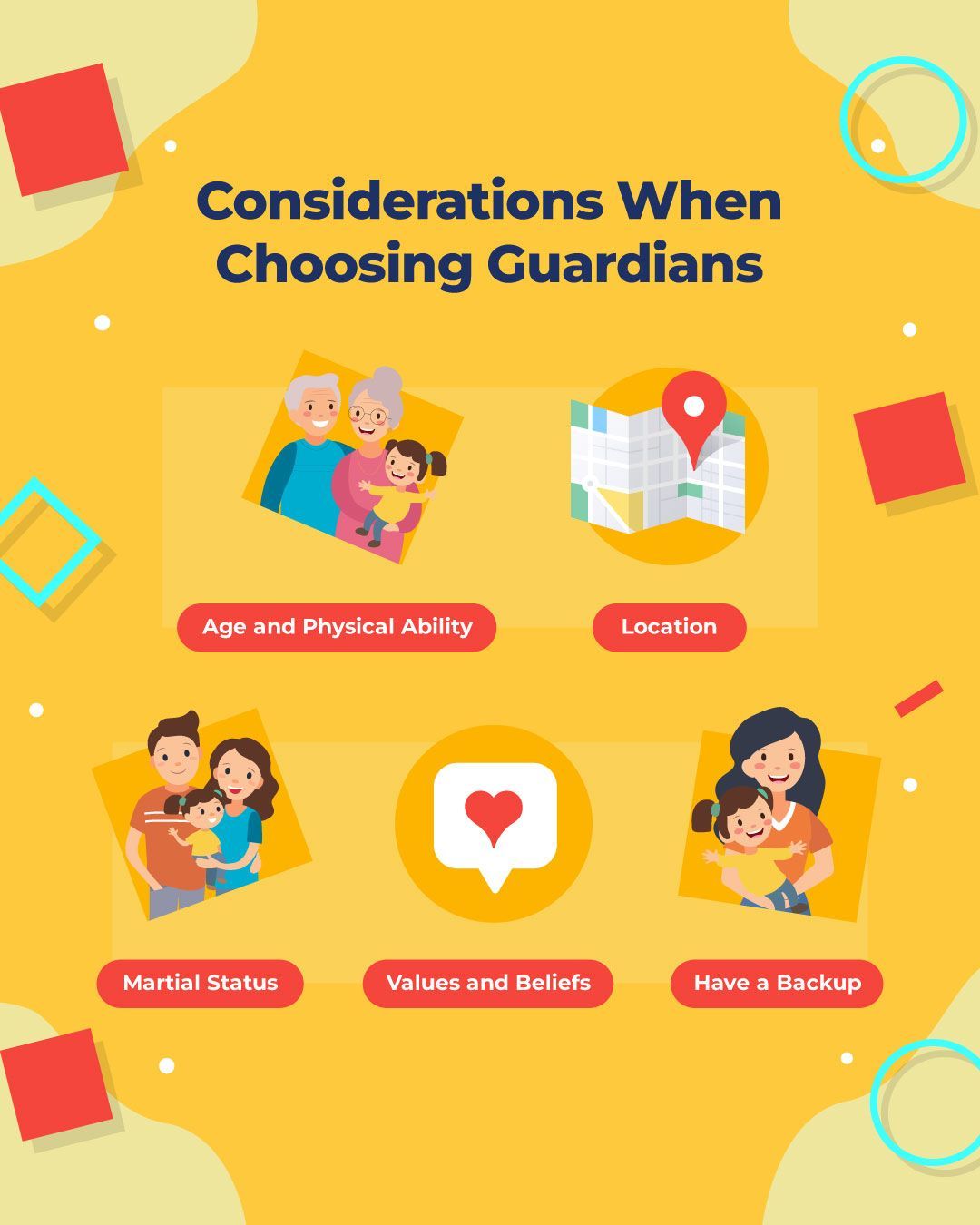How To Choose A Guardian

Choosing guardians for your children is a difficult decision that every parent should make as early as possible. While it’s a topic that many find uncomfortable to confront, it’s essential for ensuring the well-being and care of your children in the event of unforeseen circumstances.
Selecting guardians for your children ensures that they will be cared for by individuals whom you trust and who share your values and parenting style. In the absence of a clear guardian designation, the decision may be left to the courts, which can lead to uncertainty and potential conflicts among family members.
What to Consider When Choosing Guardians
Age, Physical and Financial Ability :
Choose individuals who are reliable, responsible, and capable of providing emotional and financial support to your children for years to come. Consider if you have Life Insurance and RESPs in place to cover the large costs of raising children into adulthood. It is crucial to make sure they are provided for financially without relying on the guardian.
Location:
Think about the geographic location of potential guardians and how it may impact your children’s daily lives, education, and support network. Would they be willing to move to your city or home to raise your children? Or would your children be expected to move?
Values and Beliefs:
Look for guardians who share your beliefs, lifestyle, and parenting philosophy to maintain consistency in the children’s upbringing. Consider the bond currently in place between potential guardians and your children. A strong existing relationship can ease the transition and provide comfort and familiarity to your children.
Marital Status:
Whereas you might be selecting a married couple as a guardian, consider the fact that they may no longer be married if guardianship is required. Some families chose to appoint just one person from the marriage to be the guardian listed to avoid having to make changes to the will. Your lawyer can also offer advice in this area.
FAQs
1. Can we choose more than one guardian?
Yes, you can appoint multiple guardians, either jointly or separately, to share the responsibilities of caring for your children. Be sure to specify how you want decisions to be made in case of disagreement between guardians. Always be sure to have clear discussions with the intended guardians about these important details and include them in your will.
2. What if our chosen guardians are unable or unwilling to take on the responsibility?
It’s essential to have backup guardians named in your will in case your primary choices are unable or unwilling to act as a guardian. Review and update your will regularly to reflect any changes in your chosen guardians.
3. Can we include instructions for our guardians in our will?
Yes, you can provide guidelines and instructions for your chosen guardians regarding your children’s upbringing, education, religious upbringing, and other important aspects of their care. However, keep in mind that these instructions are not legally binding and may serve as guidance for the guardians.
4. At what age should we revise our choice of guardians?
Review your choice of guardians regularly, especially during significant life events such as marriage, divorce, or the birth of additional children. It’s also wise to revisit your will every few years to ensure it reflects your current wishes and any changes in your family. Many things can change as your family ages.
Choosing guardians for your children is one of the most important decisions you’ll make as a parent. By carefully considering your options, discussing your wishes with potential guardians, and documenting your choices in your will, you can provide peace of mind knowing that your children will be cared for according to your wishes, even if you’re no longer able to be there for them.

